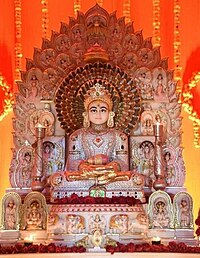**Historical Perspectives on Vegetarianism:**
– Ancient India: Jain and Buddhist principles of nonviolence towards animals dating back to 6th century BCE
– Greek and Roman Influences: Vegetarianism reemerged in Europe during the Renaissance
– Hinduism: Vedic period encouraged vegetarianism despite allowing some meat consumption
– European Renaissance and Modern Times: Vegetarianism became more widespread in the 19th and 20th centuries in the Western world
– Buddhism: Emperor Ashoka in 3rd century BCE promoted vegetarianism and nonviolence towards animals
**Cultural and Religious Influences on Vegetarianism:**
– Hinduism: Hindu texts like Ramayana and Mahabharata advocate for a vegetarian diet
– Zoroastrianism: Followers of Ilm-e-Kshnoom practice vegetarianism
– Mediterranean Basin: Pythagoras is said to have advocated vegetarianism
– Ancient Greece: Pythagoras’ followers (Pythagoreans) practiced strict vegetarianism
– Yogic Thought: Saatvik food is meant to calm and purify the mind
**Philosophical and Ethical Considerations of Vegetarianism:**
– Ethical Debates: The question of ethical duties towards animals was debated
– Ancient Greece: Vegetarianism was part of religious convictions in ancient Greece
– Yogic Thought: Living in harmony with nature became central to rulers and kings
– Ethical Debates: Belief in a Golden Age where mankind was non-violent
– Ethical Debates: Stoics were mostly anti-vegetarian
**Variations and Practices of Vegetarianism:**
– Hinduism: Killing a cow is considered a sin in Hinduism
– Buddhism: Mahayana scriptures like the Lankavatara Sutra advocate for vegetarianism
– Yogic Thought: Many Vaishnava schools avoid certain vegetables considered non-saatvik
– European Renaissance and Modern Times: Jain vegetarianism is considered the strictest and most comprehensive form
– Buddhism: Theravada Buddhists followed regulations allowing meat consumption unless specific conditions were met
**Historical Figures and Movements in Vegetarianism:**
– Ancient India: Emperor Ashoka in 3rd century BCE promoted vegetarianism and nonviolence towards animals
– Greek and Roman Influences: Some medieval European monk orders restricted meat consumption for ascetic reasons
– Zoroastrianism: Claims suggest Zoroaster was vegetarian
– Mediterranean Basin: Orphics may have practiced vegetarianism in 6th century BCE
– Ancient Greece: Empedocles advocated vegetarianism and respect for animals
The earliest records of vegetarianism as a concept and practice amongst a significant number of people are from ancient India, especially among the Hindus and Jains. Later records indicate that small groups within the ancient Greek civilizations in southern Italy and Greece also adopted some dietary habits similar to vegetarianism. In both instances, the diet was closely connected with the idea of nonviolence toward animals (called ahimsa in India), and was promoted by religious groups and philosophers.

Following the Christianization of the Roman Empire in late antiquity (4th–6th centuries), vegetarianism nearly disappeared from Europe. Several orders of monks in medieval Europe restricted or banned the consumption of meat for ascetic reasons but none of them abstained from the consumption of fish; these monks were not vegetarians but some were pescetarians. Vegetarianism was to reemerge somewhat in Europe during the Renaissance and became a more widespread practice during the 19th and 20th centuries. The figures for the percentage of the Western world which is vegetarian varies between 0.5% and 4% per Mintel data in September 2006. [citation needed]
